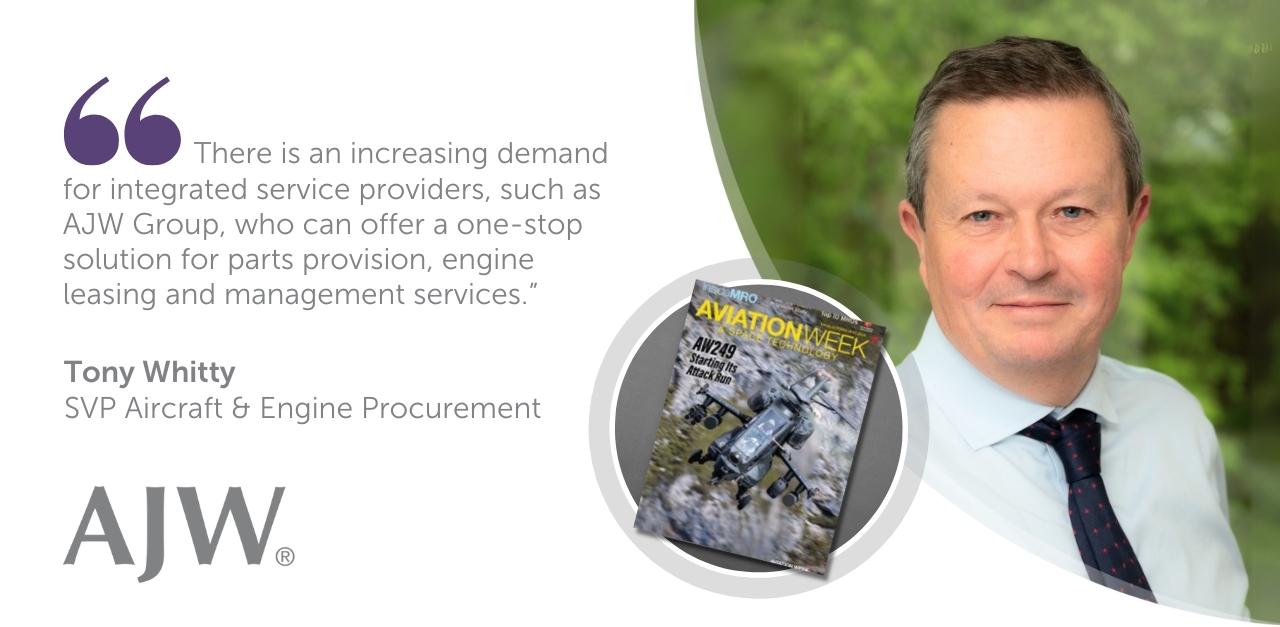

24/7 AOG Critical Response
Hotline![]() UK +44 1403 798888US +1 877 780 2008
UK +44 1403 798888US +1 877 780 2008
Our award winning global AOG service is manned 24 hours a day, 365 days a year.
Please call +44 1403 798888 or email aog@ajw-group.com.

5 Nov 2024

Speakers at Aviation Week Network’s Engine Leasing, Trading, & Finance Europe event in June suggested that more engine lessors might start integrating MRO and parts services into their platforms to ease transitions, boost material supply, and maximize the end-of-life value of their assets. What do engine experts have to say about these predictions? Aviation Week investigates.
Reporting for Aviation Week, Alex Derber speaks to Tony Whitty, AJW Group’s Senior Vice President of Aircraft and Engine Procurement about how AJW Group’s MRO capabilities help the Group offer enhanced services to its engine customers.
With lead times for many OEM parts still prolonged, there are difficulties sourcing USM due to fewer teardowns and stretched global engine maintenance capacity. Do lessors with in-house engine service capabilities enjoy an advantage over their pure-play competitors, asks Derber?
“Vertically integrated lessors tend to have an advantage due to their greater buying power, which can result in better turnaround times for engine shop visits and parts repairs,” says Whitty. “This enhanced efficiency can be particularly beneficial when MRO capacity and the supply chain are under strain.”
AJW’s services include engine leasing, management of engines on lease for third parties, and oversight of shop visits, he adds.

“Airlines and aircraft operators are looking for ways to reduce operational costs and improve efficiency,” the SVP of Aircraft and Engine Procurement continues. “This has led to a greater demand for integrated service providers, such as AJW Group, who can offer a one-stop solution for parts provision, engine leasing and management services,” he adds.
Vertically integrated aircraft engine lessors offer the aviation industry a number of significant advantages over traditional leasing models. By combining manufacturing, maintenance, and leasing services, the companies can provide enhanced reliability, cost efficiency, and tailored solutions to airlines, concludes Derber.